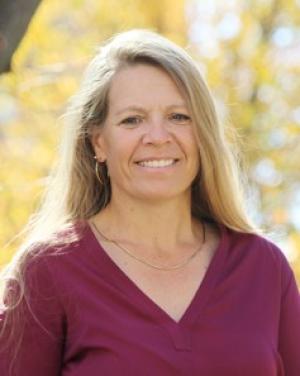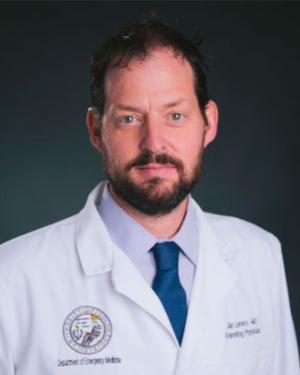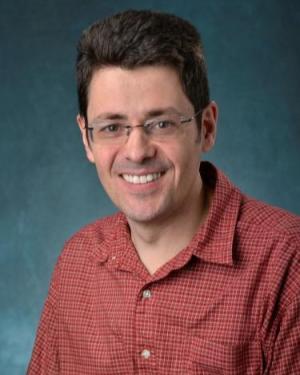From crisis to action: CU’s climate health champions in focus
In today's rapidly changing world, the urgency of addressing climate change has never been more evident. With headlines filled with reports of escalating temperatures, more frequent extreme weather events, agricultural disruptions and growing health concerns, the imperative for action is undeniable. Amid these challenges, the University of Colorado is leading separate yet interconnected research initiatives to foster resilience and equity in the face of pressing climate challenges.
Collaboration stands as a cornerstone at CU in the dynamic landscape of climate change and health. Jay Lemery, M.D., and Katherine James, Ph.D., based at the CU Anschutz Medical Campus, together with Jose-Luis Jimenez, Ph.D., at CU Boulder, epitomize this collaborative spirit, demonstrating the fusion of expertise necessary to tackle the intricate challenges at the nexus of climate and health.
These partnerships are not newly forged; they are deeply rooted in a rich history of interdisciplinary cooperation. CU innovators’ groundbreaking endeavors spotlight the longstanding tradition of collaboration between CU campuses. Beyond individual achievements, they are integral parts of broader initiatives like AB Nexus, a catalyst for fostering collaborative efforts across disciplines. For instance, Kristopher B. Karnauskas, Ph.D., associate professor in the Department of Atmospheric & Oceanic Sciences, and a core faculty member of the Climate Medicine program co-directed by Lemery, recounts past collaborations that predate formal initiatives, such as joint research on climate impact on infant mortality and malaria, spanning from Madagascar to Mozambique.
While Lemery, James and Jimenez focus on distinct areas – such as climate medicine, water contamination, and airborne transmission – all take a community-centered approach and add to the collective efforts of climate adaptation and mitigation for the Colorado and global communities.
James – epidemiologist, engineer and associate professor at the Colorado School of Public Health – leads groundbreaking research on water and air contamination in southern Colorado’s San Luis Valley, which boasts a rich generational agricultural heritage and is a popular tourist destination. The valley also is enduring a 22-year drought. This coincides with existing challenges and barriers common to rural communities, increasing metal concentrations in groundwater (drinking water) sources, and more frequent and intense dust storms (i.e. particulate matter) in ambient air.
“Our rural populations are on the front line of the climate crisis, and as a collective, have done more with much less to develop adaptation and mitigation strategies,” James said. “They are stewards of the land, culture and heritage, and society’s important climate innovators.”

This environmental crisis has far-reaching consequences, particularly impacting hard-to-reach and under-resourced populations including agriculture workers, children, aging populations, and those experiencing health conditions such as asthma. In this setting, James’ pioneering work on metal pollutants in well water offers a beacon of hope, providing crucial insights into mitigating the pressing challenges at the intersection of public health and environmental sustainability.
Partnering with hundreds of well owners and community organizations, James’ research explores the impact of drought on water quality, particularly concerning naturally occurring metals like arsenic and uranium. Her initial findings reveal elevated rates of contamination, which pose significant health risks to affected communities. However, James’ approach goes beyond research; it fosters community engagement and empowerment. By providing free sample kits and individual assessments, she not only raises awareness but also empowers communities to take informed action to safeguard their water resources.
Lemery, an emergency medicine professor at the CU School of Medicine, serves as co-director of the CU Anschutz Climate & Health Program. With a background in emergency and wilderness medicine, he brings a unique perspective, recognizing the urgent need for health care professionals to be prepared to respond effectively to climate-related emergencies.

In the Climate & Health Program, the only one of its kind in the country, physicians and nurses undergo specialized training in “climate medicine.” This innovative program equips physicians and nurses with the skills and knowledge necessary to mitigate the health impacts of climate change, from extreme weather events to shifting disease patterns. The mission is clear: to advance understanding of the impacts of climate change on human health and to be credible advocates of intelligent policy that addresses the climate crisis while advancing human dignity.
“Climate medicine is still a new concept in clinical care, and at the CU School of Medicine, we are defining it,” Lemery said.
Jimenez, a Distinguished Professor of Chemistry, leads another pioneering effort at CU Boulder, delving into the intricate dynamics of airborne transmission and its profound implications for public health. At January’s AB Nexus Climate Change & Human Health Teaming Event, he presented groundbreaking insights into the health impacts of airborne transmission, enriching collective efforts to tackle climate-related health issues.

Jimenez’s research is pivotal in comprehending the intersection of climate change and public health, especially in safeguarding communities against the evolving risks posed by airborne pollutants. As climate change exacerbates environmental challenges, such as extreme weather events and air pollution, his work is critical in ensuring community resilience and well-being.
By elucidating the health implications of airborne transmission and advocating for informed action, Jimenez underscores the importance of interdisciplinary research in mitigating the health impacts of climate change and advancing public health outcomes. His work serves as a poignant reminder of the indispensable role of scientific inquiry in shaping policies and practices to protect human health amidst a changing climate.
As we confront the multifaceted challenges posed by climate change, the collective efforts of Lemery, James and Jimenez stand as beacons of hope and inspiration. Their dedication, innovation and commitment to equity remind us that collective action can surmount even the most daunting challenges, ushering in a future where health and resilience thrive for all.
The transformative power of education, research and partnership exemplified by CU Anschutz and CU Boulder underscores the potential for positive change at the intersection of climate science and public health. Their collective endeavors demonstrate the power of collaboration in advancing solutions to the pressing challenges of our time.

